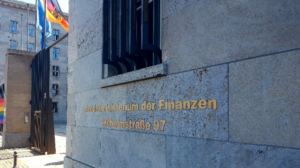Study on tax complexity presented at the Bundesfinanzministerium in Berlin
Professor Deborah Schanz and Susann Sturm (LMU Munich) were invited by the Bundesfinanzministerium (Federal Ministry of Finance (BMF)) to present the latest findings of their research project on tax complexity to a top-class audience in Berlin in July. Sturm and Schanz, together with Thomas Hoppe and Caren Sureth-Sloane from Paderborn Universtiy, have been investigating how tax complexity can be measured, and what its effects are, in different countries.

To measure tax complexity, the team developed an innovative index (Tax Complexity Index, www.taxcomplexity.org). They collected the data for this index through a worldwide survey of tax experts from more than 140 countries. The research project is a collaboration between LMU Munich and Paderborn University (Read more about the Tax Complexity Index here: https://accounting-for-transparency.de/tax-complexity-index/).
Schanz and Sturm presented the results of this survey to around 70 employees of the BMF, including State Secretary Dr. Rolf Bösinger and Head of the Tax Department Dr. Rolf Möhlenbrock. Following their presentation, they participated in a panel discussion where they debated to what extent EU directives and digitalization complicate tax law and addressed the extent to which the German tax system could be simplified.